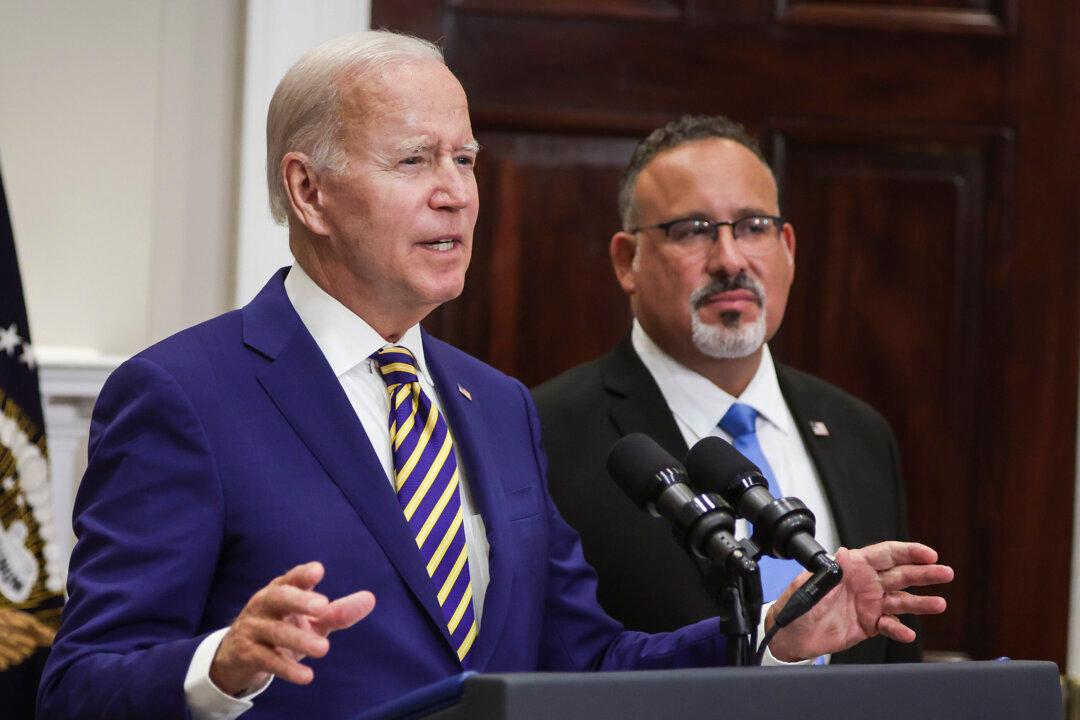President Joe Biden’s administration has been hit with the first lawsuits against a recently unveiled order that would—unless blocked—cancel thousands of dollars in debt for millions of Americans.
Biden, a Democrat, and Education Secretary Miguel Cardona, a Biden appointee, announced the order in August, revealing that people with student debt could receive up to $20,000 in relief if they meet certain conditions. Administration officials say over 40 million people are likely eligible for the relief.





